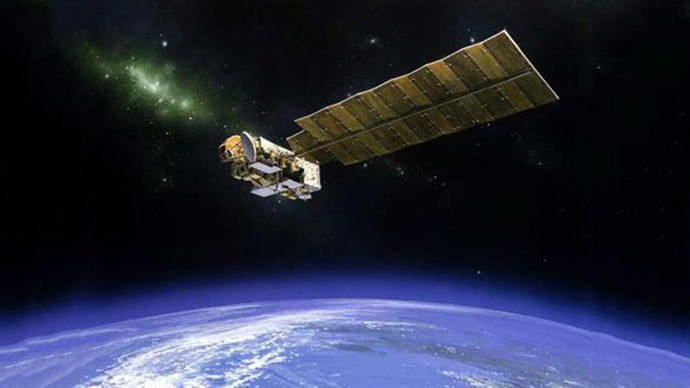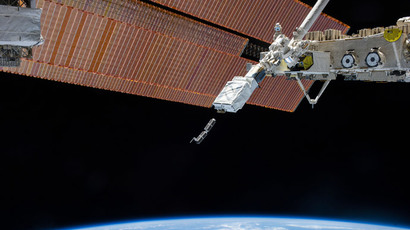US Air Force reveals ‘neighborhood watch' satellite program

The United States plans to send into orbit a pair of satellites to monitor spacecraft from other countries, as well as to track space debris, the head of Air Force Space Command said.
The US Air Force lifted the veil of secrecy on its previously classified Geosynchronous Space Situational Awareness Program (GSSAP), which will operate in conjunction with ground-based radars and telescopes to observe potential threats from foreign space objects, General William Shelton said at the Air Force Association meeting in Orlando on Friday.
The program will also be used for tracking thousands of pieces of space debris to avoid galactic collisions.
Referring to the satellite tracking system as a "neighborhood watch program," Shelton said the program "will bolster our ability to discern when adversaries attempt to avoid detection and to discover capabilities they may have which might be harmful to our critical assets at these higher altitudes."
Currently, the Air Force tracks some 23,000 pieces of orbiting debris larger than 4 inches (10.6 centimeters) at some 23,000 miles (37,000 km) above the Earth's surface.
However, since the United States already has in orbit a satellite better positioned to track orbital debris, military experts say the real purpose for the program is to prevent future attacks on its satellite network by potential rivals.
"I think the (Obama) Administration is being more honest when it says that it declassified this program to try and deter attacks on US satellites," Brian Weeden, technical advisor with the Washington-based Secure World Foundation, was quoted by Reuters as saying.
"The US has a lot of very specialized and important national security satellites in the GEO region and it is very concerned about protecting those satellites ... so by telling other countries that it has some ability to closely monitor objects near GEO and their behavior, the US hopes that will deter other countries from attacking its important satellites," Weeden said.
The satellites will also allow the US military to observe what other countries have in orbit.
"There's nothing wrong with that, but it is exactly the sort of thing the US is worried other countries will do to it," Weeden added.
The pair of satellites are scheduled for launch aboard an unmanned Delta 4 rocket at the end of 2014.
The price tag and technical details of the satellite program were not released.














